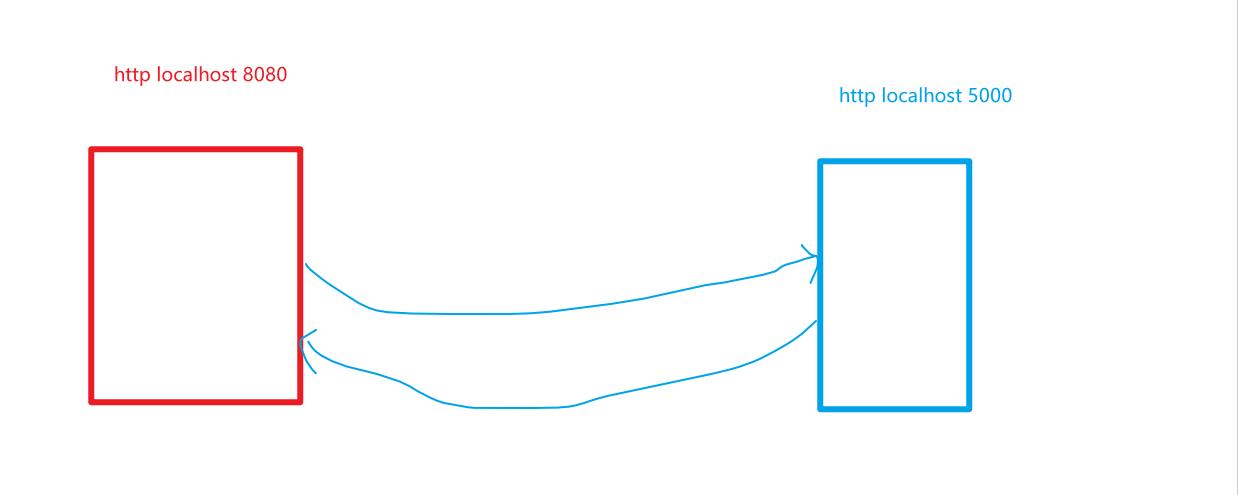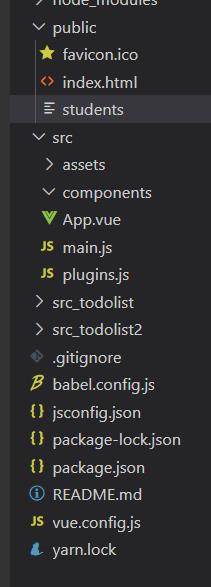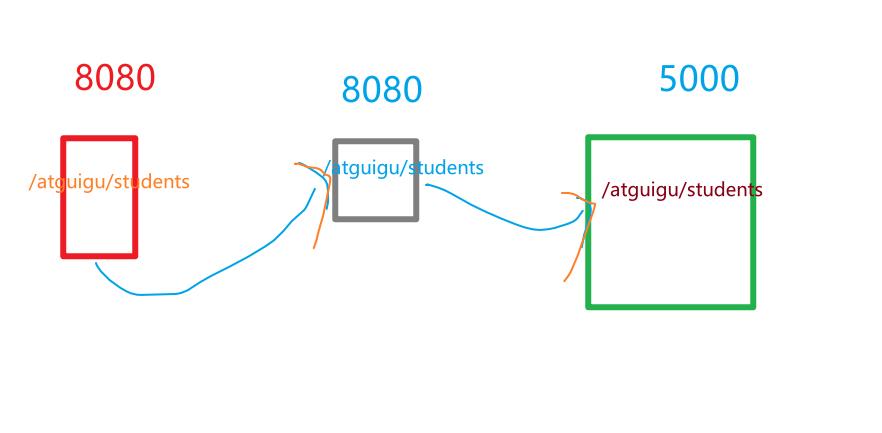axios在vue中的使用
Posted moxiaozhi
tags:
篇首语:本文由小常识网(cha138.com)小编为大家整理,主要介绍了axios在vue中的使用相关的知识,希望对你有一定的参考价值。
在该项目的vscode命令行下载
npm i axios

在使用axios时涉及跨域问题
你的8080窗口虽然发了请求,服务器也返回了消息,但是你收不到
1.cors 方式-----服务器给你返回响应时加特殊的响应头
2.jsonp方式 借助了 script 标签里面的src属性 引入外部资源时,不受同源策略限制办到的 只能解决get请求的跨域问题
3.代理服务器方式

4.利用vue-cli脚手架解决跨域问题
方式一
这种方式不能设置多个代理,只能配置一个代理,而且不能灵活控制要不要走代理
在vue.config.js里面进行全局配置,写好端口号就行了,不用写具体路径了
//开启代理服务器
devServer:
proxy:\'http://localhost:5000\'
App.vue中
发起get请求时直接填8080窗口
<template>
<div>
<button @click="getStudents">捕获</button>
</div>
</template>
<script>
import axios from "axios";
export default
name: "App",
methods:
getStudents()
//http://localhost:8080/students这里代表着代理服务器的地址加上具体路径访问数据
axios.get("http://localhost:8080/students").then(
(response) =>
console.log("请求成功", response.data);
,
(error) =>
console.log("请求失败", error.message);
);
,
,
;
</script>
如果在public里面有students,那么就不用走代理,直接拿资源

而不是去服务端的 students路径取值
方式二:
vue.config.js:
devServer:
proxy:
\'/atguigu\':
target: \'http://localhost:5000\',
App.vue:
axios.get("http://localhost:8080/atguigu/students").then(
(response) =>
console.log("请求成功", response.data);
,
(error) =>
console.log("请求失败", error.message);
);

const defineConfig = require(\'@vue/cli-service\')
module.exports = defineConfig(
transpileDependencies: true,
lintOnSave: false,
//方式二
devServer:
proxy:
\'/atguigu\':
target: \'http://localhost:5000\',
pathRewrite: \'^/atguigu\': \'\' //将匹配所有以atguigu开头的路径,将atguigu变成空字符串
ws:true,//websocket用于支持websocket
changeOrigin:false//说谎是否来自原客户端端口号
)
5.vue-resource
vue插件库
下载
npm i vue-resource
使用只要把axios替换成this.$http.get()就行了
在vue项目中的axios使用配置记录
默认vue项目中已经安装axios,基于element-ui开发,主要记录配置的相关。
- axiosConfig.js
import Vue from ‘vue‘ import axios from ‘axios‘ import qs from ‘qs‘ import { Message, Loading } from ‘element-ui‘ // 响应时间 axios.defaults.timeout = 5 * 1000 // 配置cookie // axios.defaults.withCredentials = true // 配置请求头 axios.defaults.headers.post[‘Content-Type‘] = ‘application/x-www-form-urlencoded;charset=UTF-8‘ // 静态资源 Vue.prototype.$static = ‘‘ // 配置接口地址 axios.defaults.baseURL = ‘‘ var loadingInstance // POST传参序列化(添加请求拦截器) axios.interceptors.request.use( config => { loadingInstance = Loading.service({ lock: true, text: ‘数据加载中,请稍后...‘, spinner: ‘el-icon-loading‘, background: ‘rgba(0, 0, 0, 0.7)‘ }) if (config.method === ‘post‘) { config.data = qs.stringify(config.data) } return config }, err => { loadingInstance.close() Message.error(‘请求错误‘) return Promise.reject(err) } ) // 返回状态判断(添加响应拦截器) axios.interceptors.response.use( res => { if (res.data.code === 200) { loadingInstance.close() return res } else { loadingInstance.close() Message.error(res.data.msg) } }, err => { loadingInstance.close() Message.error(‘请求失败,请稍后再试‘) return Promise.reject(err) } ) // 发送请求 export function fetchPost (url, params) { return new Promise((resolve, reject) => { axios .post(url, params) .then( res => { resolve(res.data) }, err => { reject(err.data) } ) .catch(err => { reject(err.data) }) }) } export function fetchGet (url, params) { return new Promise((resolve, reject) => { axios .get(url, { params: params }) .then(res => { resolve(res.data) }) .catch(err => { reject(err.data) }) }) }
main.js 配置
import { fetchGet, fetchPost} from ‘./api/axiosConfig‘
Vue.prototype.$get = fetchGet
Vue.prototype.$post = fetchPost
组件内部的调用
getData () { let params = { userId: this.userId } this.$get(‘/xxx‘, params).then(res => { this.listsData = res.data }).catch(() => { }) }
以上是关于axios在vue中的使用的主要内容,如果未能解决你的问题,请参考以下文章